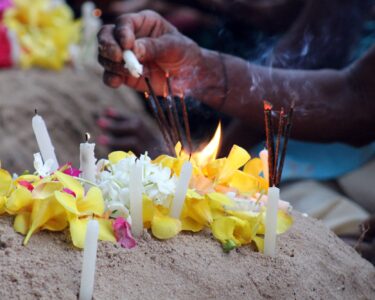A spate of robberies and thefts have been reported from various parts of Sri Lanka in recent months, raising concerns about the rising crime rate in the country.
According to police data, there has been a 20% increase in crime in the first half of 2023 compared to the same period last year. The most common crimes reported include robbery, theft, and burglary.
In the first 6 months of 2023, there have been a total of 12,000 reported crimes, of which 4,000 were robberies, 3,000 were thefts, and 2,000 were burglaries.
The increase in crime has been attributed to a number of factors, including the economic crisis, political instability, and the lack of effective law enforcement.
The economic crisis has led to an increase in poverty and unemployment, which has made people more vulnerable to crime. The political instability has also created a climate of lawlessness, as criminals take advantage of the government’s inability to maintain order.
What’s the Police doing?
The police have been criticized for their failure to effectively address the rising crime rate. Police resources are stretched thin, and there is a lack of coordination between different law enforcement agencies.
The government has promised to take steps to address the rising crime rate, but it remains to be seen whether these measures will be effective.
In the meantime, the public is advised to be vigilant and take precautions to protect themselves from crime. This includes taking steps to secure their homes and property, and avoiding walking alone in unfamiliar areas at night.
Experts Speak Out on Crime Wave
Retired senior DIG Priyantha Jayakody, who was in charge of the division handling crimes and organised crimes, said most crimes were being reported from the Western and Southern provinces.
He said close to 70% of thefts, robberies, and housebreaking were done by professional criminals.
He stressed the need for proper criminal supervision, adding that in the past decades, Sri Lanka’s crime rate and violence were monitored and controlled, but now he believes that it has changed.
“In each of these crimes committed, there is a ‘high invisible societal cost’ associated with them. For example, the public in a certain area is scared to travel on the roads at night, and females are scared to travel alone due to robberies.’’
He said the public should be more vigilant to prevent robberies and theft and take all possible precautions, such as keeping gates and doors locked and turning on an outside light at night.
He said CCTV and security alarm systems could be installed. Also, the public should not hesitate to report suspicious activity.
H.M.G.B. Kotakadeniya, a former Senior Deputy Inspector General of Police, said the usual police duties to provide security to the public and the country were not being done by the police.
“The public is being ignored, while their main priority currently is to safeguard politicians. A high number of officers are used to protect politicians. Also, a high number of police vehicles are used for politicians’ protection and security.’’
Siri Hettige, professor emeritus of sociology at the University of Colombo said, “The sense of insecurity is built up within the public. People’s happiness is ruined due to these happenings. A societal fear is also built up.”
The crime wave is a serious concern for the people of Sri Lanka. It is important for the government to take steps to address the root causes of crime and to ensure that the police are able to effectively enforce the law.
The number of murders in Sri Lanka has also increased in recent months. In the first 6 months of 2023, there have been 383 murders, compared to 325 in the same period last year.







